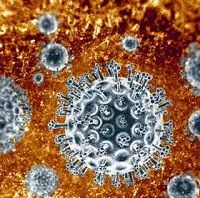Article
HCV Screenings with Endoscopy Services are Rarely Rejected
Author(s):
“Developing novel ideas to further improve HCV screening and linkage to care are needed."

A majority of eligible patients took advantage of hepatitis C virus (HCV) screening offered in conjunction with a scheduled visit to an outpatient endoscopy center, a pilot program shows.
Almost 60% of the individuals were “baby boomers,” born from 1945 through 1965 — a key group for which HCV testing is recommended. Previous studies have found that screening rates are “sub-optimal’’ for patients seen in primary care settings.
“Despite increased awareness of HCV screening, overall HCV screening rates remain low,” corresponding author Robert Wong, MD, MS, told MD Magazine.
This lack of participation in HCV testing is particularly true among under-served safety-net populations, a group that is vulnerable to disparities in medical care, said Wong, an assistant clinical professor of medicine and director of research and education at the Alameda Health System in Oakland, CA.
Wong and researchers evaluated 1,125 patients. All had come to an urban safety net hospital for endoscopy services between July 1, 2015 and July 1, 2016.
The team found 748 individuals were eligible for screening. Of those, 502 accepted HCV antibody (HCV Ab) testing, with 318 completing the test.
The results showed that 14 patients had positive HCV Ab. Eleven completed confirmatory testing with HCV RNA. Five individuals had negative RNA, and 6 had confirmed HCV infection. All 6 of those patients were then linked into an HCV clinic.
“Our rates of test acceptance are similar to other types of settings where HCV has been implemented into clinical care,” Wong said. “Overall, the rates of HCV test acceptance are high, likely given recent improved awareness of the importance of HCV screening for early diagnosis and treatment.”
The rationale for HCV screening in conjunction with endoscopy is 3-fold, the researchers said.
First, safety-net primary care providers may not have as much time to address HCV risk factors as specialty centers do. Second, the baby boom generation falls within recommendations for colon cancer screening performed at endoscopy units. Lastly, HCV screening and diagnosis in endoscopy settings may offer improved linkage-to-care into gastroenterology clinics.
“Developing novel ideas to further improve HCV screening and linkage to care are needed,” Wong said. “Incorporating HCV screening into outpatient endoscopy units may provide a feasible option to achieve improved screening rates.”
The authors noted that patients who come in for routine endoscopy are already taking part in the medical care system.
“Thus while our results are encouraging among safety-net populations, they may not be completely generalizable to more vulnerable populations with significant barriers in access to care,” researchers wrote.
Wong said that additional avenues exist to encourage and streamline HCV screening.
“Many institutions have implemented this into the emergency room, which is particularly important given the high risk profile of patients that utilize emergency room settings,” Wongsaid.
Implementing HCV screening as part of inpatient hospitalization order sets could give clinicians a chance to capture high-risk individuals who haven’t been screened, Wong added.
Wong’s team is concentrating current research on understanding the barriers in access to care as it relates to viral hepatitis screening and linkage to care.
“We are additionally focusing on disparities in timely access to specialty care for patients with chronic hepatitis B (HBV) and chronic HCV and how delays in access to care affect their access to antiviral therapy,” Wong said.
The study, "Pilot Study of Screening Patients for Hepatitis C Virus Infection During Outpatient Endoscopy," was published online in Clinical Gastroenterology and Hepatology this month.




